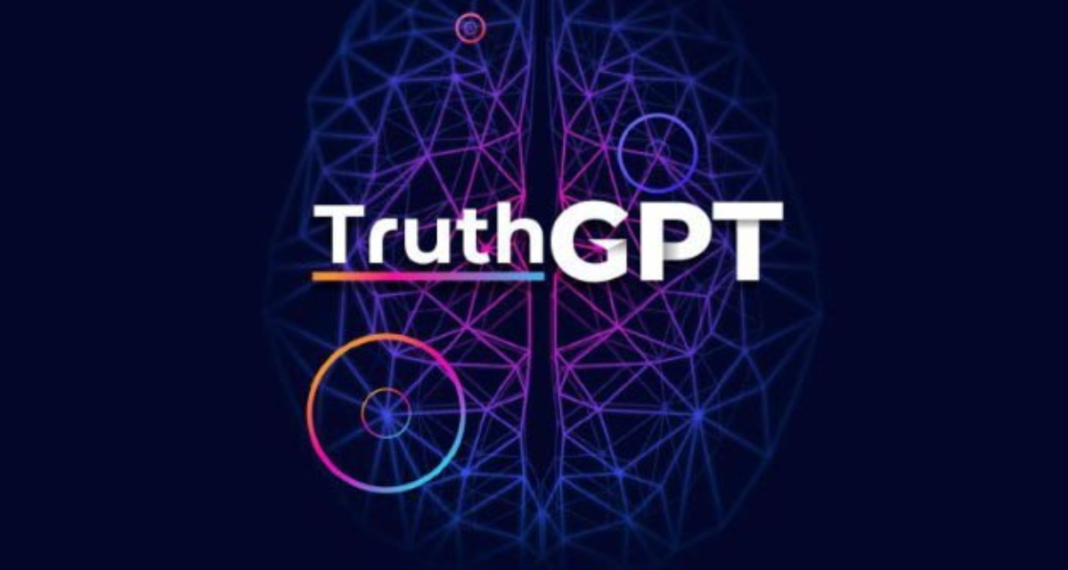Truth GPT Crypto: Unlocking the Future of Cryptocurrency and AI
Cryptocurrency and artificial intelligence (AI) are two revolutionary technologies that have captured the attention of the world. As they continue to evolve, new possibilities emerge, and their convergence has the potential to shape our future in unimaginable ways. In this article, we will delve into the truth behind GPT and crypto, exploring their synergies, challenges, and the impact they can have on various industries.
The Rise of Cryptocurrency: Unleashing a Digital Revolution
Cryptocurrency, the digital form of currency, has gained significant traction in recent years. Spearheaded by Bitcoin, these decentralized digital assets have disrupted traditional financial systems, offering a secure, transparent, and borderless means of transaction. But what is the truth behind the rise of cryptocurrency? Let’s explore.
The Birth of Bitcoin: A Pioneering Innovation
In 2008, a pseudonymous person or group known as Satoshi Nakamoto introduced Bitcoin, the world’s first cryptocurrency. Combining cryptographic principles and peer-to-peer technology, Bitcoin laid the foundation for a decentralized digital currency that operates outside the control of any central authority. Its underlying technology, blockchain, ensures transparency, immutability, and security of transactions. Since then, numerous cryptocurrencies have emerged, each with its unique features and applications.
The Potential of Cryptocurrency: Beyond Monetary Transactions
While cryptocurrency initially gained popularity as an alternative form of digital money, its potential extends far beyond financial transactions. Smart contracts, built on blockchain technology, enable the creation and execution of self-executing contracts without intermediaries. This opens up possibilities for decentralized applications (dApps) and programmable economies. Additionally, cryptocurrencies can be utilized for fundraising through initial coin offerings (ICOs), providing a novel way for startups to secure funding.
Cryptocurrency in the Real World: Adoption and Challenges
Cryptocurrency adoption has witnessed both remarkable success and significant challenges. Several industries, including finance, gaming, e-commerce, and even healthcare, have embraced digital currencies. Major companies such as Tesla and PayPal now accept Bitcoin as a valid payment method, adding credibility to the crypto ecosystem. However, challenges such as regulatory uncertainties, scalability issues, and concerns about security and privacy remain significant hurdles to widespread adoption.
GPT and Crypto: A Synergistic Relationship
As the world explores the potential of cryptocurrency, another technological marvel, known as Generative Pre-trained Transformer (GPT), is making waves in the field of AI. Developed by OpenAI, GPT is an advanced language model that has revolutionized natural language processing (NLP) and machine learning. When these two cutting-edge technologies converge, exciting opportunities arise. Let’s uncover the truth behind the synergy of GPT and crypto.
Enhancing Crypto Trading with GPT: Accurate Predictions and Analysis
Crypto trading is a volatile market where accurate predictions and timely analysis can make a significant difference. GPT models, with their ability to analyze vast amounts of data and recognize patterns, have the potential to assist traders in making informed decisions. By leveraging GPT-powered algorithms, traders can access real-time market insights, predict price movements, and mitigate risks. Furthermore, GPT models can provide sentiment analysis, helping traders gauge market sentiment and make data-driven investment choices.
The Role of GPT in Crypto Security: Addressing Vulnerabilities
Security is a critical concern in the world of cryptocurrency. With billions of dollars at stake, ensuring the integrity and protection of digital assets is of paramount importance. GPT models can be employed to detect and prevent fraudulent activities, identify vulnerabilities in smart contracts, and enhance the security of blockchain networks. By analyzing historical data and identifying suspiciouspatterns, GPT can contribute to the development of robust security protocols, safeguarding the crypto ecosystem against malicious attacks.
GPT for Automated Customer Support in Crypto: Improving User Experience

As the popularity of cryptocurrencies surges, the need for efficient customer support within the crypto industry grows. GPT models can be trained to understand and respond to user queries, providing automated customer support solutions. By leveraging GPT’s language processing capabilities, crypto platforms can offer personalized assistance, address user concerns, and enhance the overall user experience. This not only saves time and resources but also fosters trust and loyalty among crypto enthusiasts.
GPT and Decentralized Finance (DeFi): Transforming the Financial Landscape
Decentralized Finance, or DeFi, has emerged as a disruptive force within the crypto space, offering innovative financial solutions that challenge traditional banking systems. GPT can play a significant role in this domain by enabling automated risk assessment, smart contract analysis, and personalized financial advice. The integration of GPT-powered solutions in DeFi platforms can streamline processes, enhance transparency, and facilitate the democratization of financial services.
GPT and Blockchain Governance: Facilitating Consensus and Decision-Making
Blockchain technology, the foundation of cryptocurrencies, relies on consensus mechanisms for decision-making and governance. GPT models can contribute to this aspect by facilitating decentralized decision-making processes. By analyzing the sentiment and preferences of participants, GPT-powered systems can aid in achieving consensus, ensuring fairness, and promoting efficient governance within blockchain networks. This paves the way for more inclusive and participatory systems that empower stakeholders.
The Challenges and Risks of GPT and Crypto
While the potential of GPT and crypto is immense, it is crucial to address the challenges and risks associated with their implementation. Understanding these issues is essential for ensuring the responsible and sustainable development of these technologies. Let’s explore some of the key challenges and risks.
Ethical Considerations in GPT and Crypto: Addressing Bias and Misuse
GPT models have raised concerns regarding biases in language generation and potential misuse. Ensuring ethical considerations in the development and deployment of GPT models is crucial to mitigate these risks. Similarly, the decentralized nature of cryptocurrencies can also give rise to ethical dilemmas, such as facilitating illicit activities or money laundering. Striking a balance between innovation and responsible use is paramount to harness the full potential of GPT and crypto while upholding ethical standards.
Regulatory Frameworks for GPT and Crypto: Navigating Legal Landscapes
The regulatory landscape surrounding GPT and cryptocurrencies is evolving, and navigating this complex terrain presents a significant challenge. Governments and regulatory bodies are grappling with the task of formulating policies that strike a balance between fostering innovation and protecting consumers. Clear and comprehensive regulatory frameworks are necessary to address concerns related to investor protection, market manipulation, privacy, and financial stability. Collaboration between industry stakeholders and policymakers is crucial to create a conducive environment for the development of GPT and crypto.
Security and Privacy Risks in GPT and Crypto: Safeguarding User Data
Security and privacy are vital considerations in both GPT and crypto domains. GPT models require robust security measures to protect sensitive data, as their large-scale training involves handling vast amounts of information. Similarly, in the crypto space, securing user data, private keys, and transactions is crucial to prevent unauthorized access and potential breaches. Developers and service providers must prioritize the implementation of stringent security protocols to safeguard user privacy and instill trust in these technologies.
Technical Challenges in GPT and Crypto Integration: Scalability and Interoperability
Integrating GPT models into crypto applications and platforms poses technical challenges. Scalability is a significant concern as the size and complexity of GPT models require substantial computational resources. Additionally, ensuring interoperabilitybetween different blockchain networks and GPT-powered systems is essential for seamless integration. Overcoming these technical challenges requires ongoing research and innovation to optimize performance, enhance scalability, and foster interoperability between GPT and crypto technologies.
Volatility and Market Uncertainty: Navigating Crypto Investments
Cryptocurrency markets are notorious for their volatility and unpredictability. Investing in crypto assets carries inherent risks, and market fluctuations can have a significant impact on investment portfolios. It is essential for individuals to conduct thorough research, diversify their investments, and exercise caution when venturing into the crypto market. Seeking professional advice and staying informed about market trends can help mitigate risks and make informed investment decisions.
User Education and Adoption: Bridging the Knowledge Gap
Widespread adoption of GPT and cryptocurrencies relies on user education and awareness. Understanding the underlying technology, its benefits, and potential risks is crucial for individuals and businesses. Efforts to bridge the knowledge gap through educational initiatives, user-friendly interfaces, and comprehensive resources can drive mainstream adoption of GPT and crypto. By empowering users with the necessary knowledge and tools, we can foster a more inclusive and informed digital economy.
In Conclusion: Embracing the Power of GPT and Crypto
The convergence of GPT and crypto holds immense potential to transform industries, enhance security, automate processes, and democratize financial services. However, it is essential to navigate the challenges, address ethical considerations, and develop robust regulatory frameworks to unlock the full potential of these technologies responsibly. By embracing the power of GPT and crypto, we can usher in a future where AI and decentralized systems reshape our world for the better.
FAQs about GPT and Crypto
1. What is the role of GPT in the crypto industry?
GPT plays a vital role in the crypto industry by enabling accurate predictions, enhancing security, automating customer support, and facilitating decentralized decision-making.
2. How can GPT models enhance crypto trading?
GPT models can analyze market data, recognize patterns, and provide real-time insights, assisting traders in making informed investment decisions.
3. What are the risks of GPT models in the crypto space?
Some risks include biased language generation, potential misuse, and the need for robust security measures to protect sensitive data.
4. How can GPT contribute to decentralized finance (DeFi)?
GPT can automate risk assessment, provide personalized financial advice, and enhance transparency in DeFi platforms, revolutionizing the financial landscape.
5. What are the challenges in integrating GPT and crypto?
Technical challenges such as scalability, interoperability, and regulatory complexities pose hurdles in the seamless integration of GPT and crypto technologies.
6. How can users navigate the risks of crypto investments?
Users should conduct thorough research, diversify their investments, and stay informed about market trends to mitigate risks in the volatile crypto market.


